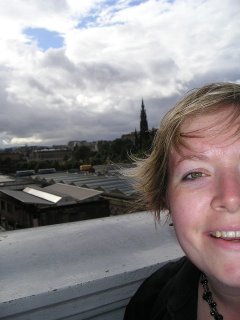
The Vienna Phil have long been renowned for their playing, for the gusto and bravado of their Mahler and Strauss, their exquisite molding of the classical melodies of Mozart and Haydn. They have also long been known for their adherence to tradition. They have a distinct sound, an exact idea of how things should be played in the Vienna Philharmonic.
They have also long been known for traditionally being an all male orchestra. In this modern era where

orchestras have a much larger proportion of female musicians in the ranks (the New York Phil has a ration of 40% women; and the introduction of screens particularly in America has increased female musicians in orchestra by 50%), it is almost baffling that this orchestra is still in the dark ages when it comes to gender equality. Don't get me wrong they
claim to want to increase their female membership (
which used to consist of a lone harpist and substitute musicians - or musicians that are members of vienna state opera but not the phil). But they do not follow through.
They claim that their tradition is what gives them their greatness and their
sound. Their tradition definitely keeps them in the nineteenth century. Their claims make it apparent that they still believe that women musicians are not as capable as their male counterparts. The
they that I am referring to is the orchestral musicians themselves (who are, ehhhm, lets see ... oh .. yeah
men) as they pride themselves on being a democratic organization where the
members vote on everything. Saying that they wish to increase their female membership and then not hiring

any women speaks volumes about how the Vienna Phil really feel about gender equality.
I heard this orchestra in Carnegie Hall a few years back. They were exciting and vibrant. Haitink was conducting and I was enthralled. The interesting thing is that this performance which had every ounce of me invested in every note had a significant number of
women in the orchestra. I realise that they were probably all substitutes (orchestras commonly use quite a lot of subs when they go on tour - which is why when I saw Berlin at the Proms in London ten years ago there was a
woman in the double bass section!). I would be very interested to hear if anyone would try to make the claim that the orchestra would have sounded better without them!
I have to sadly agree with Justin Davidson whose
post on Newsday brought this sorry affair to my attention, that I too will forgo any chance to hear this orchestra until they start to play from the same hymn sheet as the rest of the twenty-first century.
 This is an oil painting I did about 6 years ago from our deck in Cincinnati. It was one of those paintings I thought I'd more to finish on it and then realized I liked it just the way it was.
This is an oil painting I did about 6 years ago from our deck in Cincinnati. It was one of those paintings I thought I'd more to finish on it and then realized I liked it just the way it was. This is on a box canvas - it stands about 4 inches out from the wall - arylic (Golden - they rock!)
This is on a box canvas - it stands about 4 inches out from the wall - arylic (Golden - they rock!) This I intended to be a background for something and then Dazza said he liked it just the way it was - it reminds me of Louisiana swamp (or a little - OK a very little - like Turner's expansive skies).
This I intended to be a background for something and then Dazza said he liked it just the way it was - it reminds me of Louisiana swamp (or a little - OK a very little - like Turner's expansive skies).
 This was inspired by the last - and I like to think of it as a Miami hurricane - the wind blowing, the green sky of a storm all framed in Art Deco pink.
This was inspired by the last - and I like to think of it as a Miami hurricane - the wind blowing, the green sky of a storm all framed in Art Deco pink.
 This is the last in this inspirational mode. It reminds me of the formations we saw in Moab last summer.
This is the last in this inspirational mode. It reminds me of the formations we saw in Moab last summer.
















